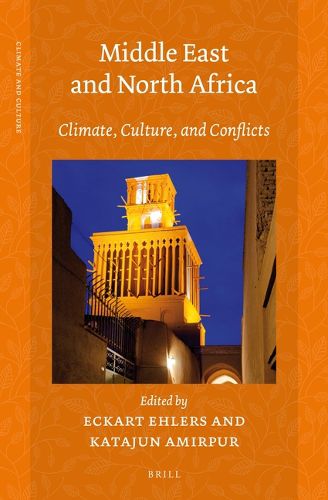Readings Newsletter
Become a Readings Member to make your shopping experience even easier.
Sign in or sign up for free!
You’re not far away from qualifying for FREE standard shipping within Australia
You’ve qualified for FREE standard shipping within Australia
The cart is loading…






The volume Middle East and North Africa: Climate, Culture and Conflicts focuses on the intricate interrelationships between nature, culture and society in this ecologically, historically and politically fragile region. As such, it debates ideas of eco-theology from Muslim and Jewish perspectives, followed by mythological interpretations and geo-archeological resp. historical analyses of the interrelationships and impacts of climate and other environmental factors on the development of ancient civilizations and cultures. The section Present addresses current conflict scenarios as a result of climate change, i.e. water scarcity, droughts, desertification and similar factors. The final section is concerned with potentials of international cooperation in pursuit of developing and ensuring sustainable energy resources and moves across different scales of environmental and religious education, from awareness raising to perspectives of best practice examples.
Contributors are Katajun Amirpur, Helmut Bruckner, Eckart Ehlers, Max Engel, Kerstin Fritzsche, Ursula Kowanda-Yassin, Tobias von Lossow, Ephraim Meir, Rosel Pientka-Hinz, Matthias Schmidt, and Franz Trieb.
$9.00 standard shipping within Australia
FREE standard shipping within Australia for orders over $100.00
Express & International shipping calculated at checkout
Stock availability can be subject to change without notice. We recommend calling the shop or contacting our online team to check availability of low stock items. Please see our Shopping Online page for more details.
The volume Middle East and North Africa: Climate, Culture and Conflicts focuses on the intricate interrelationships between nature, culture and society in this ecologically, historically and politically fragile region. As such, it debates ideas of eco-theology from Muslim and Jewish perspectives, followed by mythological interpretations and geo-archeological resp. historical analyses of the interrelationships and impacts of climate and other environmental factors on the development of ancient civilizations and cultures. The section Present addresses current conflict scenarios as a result of climate change, i.e. water scarcity, droughts, desertification and similar factors. The final section is concerned with potentials of international cooperation in pursuit of developing and ensuring sustainable energy resources and moves across different scales of environmental and religious education, from awareness raising to perspectives of best practice examples.
Contributors are Katajun Amirpur, Helmut Bruckner, Eckart Ehlers, Max Engel, Kerstin Fritzsche, Ursula Kowanda-Yassin, Tobias von Lossow, Ephraim Meir, Rosel Pientka-Hinz, Matthias Schmidt, and Franz Trieb.